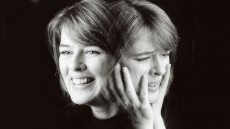Female physicians are approximately one and a half times more likely to be divorced than male physicians of a similar age, says a study.
Those female physicians who work longer hours are at increased risk, possibly because of the need for work/life tradeoffs, the researchers pointed out.
"We believe that the higher incidence of divorce among female physicians stems from the greater tradeoffs they are forced to make to achieve work/life balance," said lead author Dan Ly, medical resident at Massachusetts General Hospital.
The researchers found that while female physicians who reported working more than 40 hours per week had a higher probability of ever being divorced than did those working fewer hours, the apparent impact of hours worked on divorce incidence was the opposite for males.
Among male physicians, working more than 40 hours a week was associated with a lower incidence of divorce.
But the good news is that, according to the study, physicians are actually less likely to be or to have been divorced than those in other occupations - including lawyers, nurses, and other healthcare professionals.
"We found that doctors have among the lowest rates of divorce among health care professionals," said senior author of the report Anupam Jena from the Harvard Medical School.
For the study, the researchers analysed data from the American Community Survey, an annual survey of around three million households conducted by the US Census Bureau.
Survey results from 2008 through 2013 were included.
While 24 percent of physician respondents had ever been divorced, the probability of being divorced was 25 percent among dentists, 31 percent among health care executives and 33 percent among nurses.
Only pharmacists, at 23 percent, were less likely than physicians to have been divorced.
Lawyers had a 27 percent probability of being divorced, and in all non-health care occupations, the probability of ever being divorced was 35 percent.
The study was published online in The BMJ (formerly The British Medical Journal).





